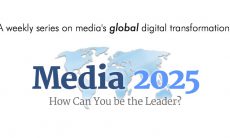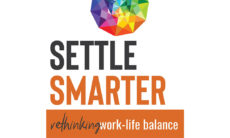| This marks the second in a series focusing on approaches, points of view and visions for what thoughtful, 21st Century leadership looks like. Curious, courageous, tireless, forward-thinking leaders are constantly asking themselves and their teams, how do we move from good to great? What are our greatest opportunities to transform our leadership perspective and competencies to have an outsized impact on our organizations? In essence, how can we strive to embody the characteristics that exemplify what Jim Collins labeled ‘Level 5’ leadership – “humility, will, ferocious resolve, and the tendency to give credit to others while assigning blame to [ourselves].” There is considerable wisdom in Collins’ perspective and those of the range of authors and speakers that round out this week’s publication. This will be my final newsletter for the next few weeks as school winds down and we set out on some well earned vacation time in late May and early June. I will be back next month and I look forward to publishing the next series of posts.As always, happy reading and listening! Articles How to Develop Your Leadership Style: Concrete advice for a squishy challenge: “This practical guide offers concrete advice for developing a dynamic and effective leadership style that draws from both types of markers for maximum impact.” The Surprising Traits of Good Remote Leaders: “Strong in-person leadership skills don’t necessarily translate to being a good virtual leader. Instead, organisation and competency reign supreme.” How Leaders Can Regain Trust in Untrusting Times: “Rebuilding and sustaining trust, essential to strong leader/follower relations and central to ongoing work performance, will require explicit attention by leaders…For those willing to put in the work, the following 10 practices can help rebuild the relational fabric essential to leadership.” What Does It Mean to Be a Courageous Leader? Ask Microsoft’s Kate Johnson: “…Throughout my career, I have had three big takeaways. The first is that my story starts with my thinking I knew what I wanted to do, though I did not…The second lesson is, I never immersed in one function or industry…And third, the most important lesson is that in anything you do, you must believe you are worthy and able, and you are the one who can get it done.” Fit-for-context Leadership: Leading in the Digital World: How to Foster Creativity, Collaboration, and Inclusivity: “…Today, new technologies with a long arc of impact are giving rise to the ‘digital epoch’ and creating the need for a new set of leadership practices.” The CEO moment: Leadership for a New Era. “When the pressure decreases, will CEOs go back to operating as they did before? Or will the role at the top be thoughtfully reconsidered and reconceived by those who occupy it? Clearly, not every CEO will choose to make permanent the four shifts we’ve discussed. The more that CEOs do, however, the more the moment has the potential to become a movement—one that could create higher-achieving, more purposeful, more humane, and better-connected leaders.” Reconsidering Servant Leadership: “A half-century ago, it was a fresh idea. But the phrase has lost its relevance and impact.” The Problem with Heroes: “…The harder, and more important, work is to make a spate of heroes unnecessary. That’s the work of a strong leader who appreciates the value of competent management and knows how to build the systems it requires. That’s an often-unheralded component of leadership. That’s also the central work of moving toward a better, less vulnerable, and more sustainable normal.” Why Ambiverts Are Better Leaders: “Blending both extrovert and introvert personality types can make you indispensable in the office – and finding that balance is a skill we can all master.” Why Introverts Make Great Leaders: “For decades, introverts have been written off as ineffective and incapable business leaders. Here’s why that’s utter BS.” Podcasts HBR: Coaching Real Leaders: The Problem with Always Being the Problem Solver. “He’s spent much of his career successfully being a problem solver. Now, as he works his way up, he’s realizing that always trying to fix everything won’t let him focus on leading – or help his team succeed. How can he adapt his approach to lead more effectively?” Against the Rules with Michael Lewis: Don’t Be Good – Be Great. “Michael revisits his high school days in New Orleans to tell the story of Billy Fitzgerald, the baseball coach who changed his life; and makes the case for the old-school, tough- love coaching.” Blog Posts HBS Working Knowledge: Why Can’t More Leaders Teach? “If the best leaders tend to be great teachers, why do some successful executives struggle to share their knowledge? What does this shortcoming say about their leadership?” Mentor Lead: Create More Than You Consume (thanks Jeff Bezos!): “…We create value when we exceed others’ expectations and up-level our participation and contributions.” Arts, Music & Culture Corner “Pearls”: A new essay reflecting on 30 years of partnership. David Sedaris in The New Yorker Hear Martin Garrix’s New Song ‘We Are the People,’ Featuring Bono and the Edge: “Song was written and recorded in secret for the upcoming UEFA European Football Championship.” Bob Dylan Museum to Open in 2022: “The Bob Dylan Center in Tulsa, Oklahoma will contain over 100,000 artifacts spanning Dylan’s career.” Reflections “The hallmark of curiosity is a thirst for knowledge that has no obvious utility. Being a lifelong learner is taking joy in exploration regardless of whether the discovery has immediate relevance. The goal is to understand for the sake of understanding.” – Adam Grant “Today is only one day in all the days that will ever be. But what will happen in all the other days that ever come can depend on what you do today.” – Ernest Hemingway |
| This article was originally published here. |








